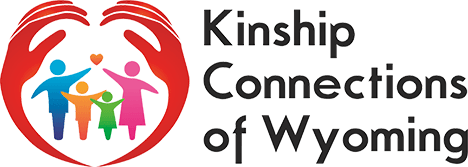Kinship Connections of Wyoming is a free program that was implemented to meet the growing needs of grandparents, relatives and other caregivers who are raising children who are not their own. The program was initiated by Wyoming 2-1-1 in partnership with the Wyoming Department of Family Services and the Wyoming Citizen Review Panel. Kinship Connections officially began serving kinship caregivers in December 2019 and since that time the program's Kinship Navigators have had the opportunity to work with over twenty families.
The Kinship Connections of Wyoming blog and newsletter are intended to be here for kinship caregivers and collaborating community resources. We will provide up to date and relevant information regarding upcoming events, important topics, resources, and support. Today and always we welcome your feedback regarding our program or the content we share with you.
We see each of you, we appreciate all you do, and we are a part of your team. We look forward to growing together and serving you in new ways.
Did you know that Kinship Connections of Wyoming offers a monthly newsletters? We would love for you to join our mailing list by imputing your information below. You can also click here to view all our previous letters.
The Kinship Connections of Wyoming blog and newsletter are intended to be here for kinship caregivers and collaborating community resources. We will provide up to date and relevant information regarding upcoming events, important topics, resources, and support. Today and always we welcome your feedback regarding our program or the content we share with you.
We see each of you, we appreciate all you do, and we are a part of your team. We look forward to growing together and serving you in new ways.
------------------------------------------------------------------------------------------
If you would like to learn more about Kinship Connections of Wyoming, you can look through our website or you can reach us by simply dialing 2-1-1 and ask for Kinship Connections. Furthermore, if you know of a family who could benefit from our program you can direct them to simply dial 2-1-1 or you can complete our online referral form.
Did you know that Kinship Connections of Wyoming offers a monthly newsletters? We would love for you to join our mailing list by imputing your information below. You can also click here to view all our previous letters.
